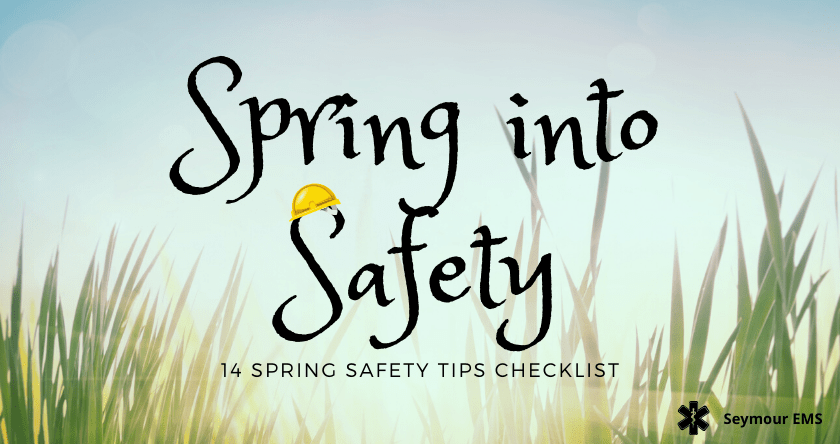As each new season arises, the elements of the weather and the traditions of the season leave us with different safety precautions and tips to consider. Although it may seem that the greater risks are behind us as we move away from the potentially dangerous weather we had faced in winter, spring has its own set of conditions to consider, In this article, you’ll discover our 14 point spring safety tips and best practices.
General Safety Tips
General safety is the first thing to consider heading into spring. Here are some great spring safety tips to keep yourself and your family safe as your transition into the new season:
-
- Removing any old paint cans and paint thinners, in addition to old newspapers and magazines. Your local dump station should have a place for hazardous material drop off to dispose of these chemicals safely.
- Consider your smoke alarms. Do you have enough in your residence or workplace? Change the batteries each spring to be sure you are properly prepared for an emergency.
- Clean the dust covers of carbon monoxide detectors.
- Review your emergency escape plan with each member of the family in the event of a fire.
- Clean or replace your furnace filter.
- Grease can accumulate on your stove hood. Properly cleaning this is one way to keep flames from spreading should a fire break out.
- Check all fire extinguisher needle indicators and dates to be sure they are working.
- Clean around your dryer. Pay close attention to any ducts or dampers to be sure that lint has not accumulated and blocked this space. Accumulation of lint can lead to a fire.
- Check all chords to prevent an electrical fire. Make sure they are not frayed and wires are not visible.
Outdoor Safety Tips
It is also important to have an outdoor emergency plan for your family.
- Practice ladder safety. If you plan on climbing a ladder, you should do so accompanied by someone who can help in the event of an emergency. Be sure ladders are placed on level spaces and they have been secured.
- Check outdoor cords for frays and damage.
- Check any gas-operated equipment to be sure all fuel lines are safe.
- Do not store gasoline in an open space. Be sure all equipment used for lawn equipment and outdoor purposes has been properly fueled outdoors to eliminate the risk of inhalation.
- Keep all dangerous options liquids or chemicals from children, especially those that can become flammable.
Although you might not have considered following these Spring emergency procedures, they are important to the safety of your family. Talk to your local emergency personnel about what steps you can take to prevent any potential emergencies from arising.


Recent Comments